Waiting for Godot at the Barbican
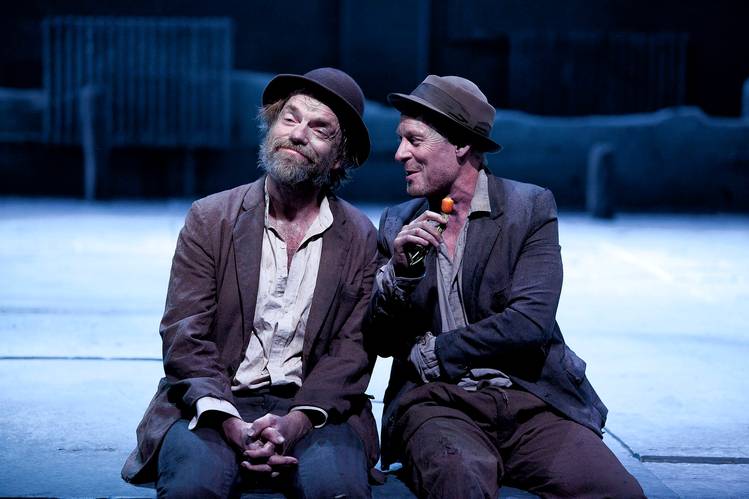
There has been much anticipation surrounding the London reprisal of the Sydney Theatre Company production Waiting for Godot. Part of the International Beckett season, this rendition of one of the Theatre of the Absurd’s defining works boasts a cast whose rich theatrical and cinematographic repertoires can, in themselves, guarantee a show’s success, and the work does indeed live up to the high expectations.
 Two friends, Estragon and Vladimir, bemoan their physical ailments as they hang around a dismal spot to honour a vaguely arranged appointment with someone named Godot. A naked tree is the crowning element of a bare set whose drabness is accentuated by stark, white lights. The men’s sole object as they await Godot is to kill time, and they fluctuate between sheer boredom and a certain kind of pleasure derived from justified inertia. Waiting for an indeterminate event that may or may not take place proves to be reassuring, in that it relieves them from the responsibility of facing the present moment whilst validating their time with a general sense of purpose.
Two friends, Estragon and Vladimir, bemoan their physical ailments as they hang around a dismal spot to honour a vaguely arranged appointment with someone named Godot. A naked tree is the crowning element of a bare set whose drabness is accentuated by stark, white lights. The men’s sole object as they await Godot is to kill time, and they fluctuate between sheer boredom and a certain kind of pleasure derived from justified inertia. Waiting for an indeterminate event that may or may not take place proves to be reassuring, in that it relieves them from the responsibility of facing the present moment whilst validating their time with a general sense of purpose.
They embrace, they dance and they even engage in verbal abuse just to make something happen. Having no scheduled activities makes them keenly aware of the passing of time, and Beckett cleverly shows just how much action is taken for its own sake. As Estragon puts it: “We always find something to give us the impression we exist”. The following morning, the characters hardly remember what occurred the previous day, so their conversations and thought processes are practically repeated.
The implication is that people can become trapped by their habits and go around in circles without ever finding the strength to break free, even though the desire and the intention to do so may be present. Godot is a pretext to remain in the same spot, out of a fear of venturing far. The absurdity of waiting for this unreliable acquaintance and his dubious promises is perhaps a call to stop relying on the illusions of the future and invest time in something more substantial than passive anticipation.
The audience’s appreciation of the production is felt throughout the show in the form of frequent chuckles and some roaring laughter, and it culminates in a long, warm applause at the end. The chemistry between Hugo Weaving and Richard Roxburgh makes the comedy flow effortlessly, and the play’s harmonious balance between words and silence is given full expression. The result is a gripping performance that honours Beckett’s poetic humour and allows the audience to truly grasp its tragicomical essence.
Mersa Auda
Photo: Lisa Tomasetti
Waiting for Godot is on at the Barbican from 4th June until 13th June 2015, for further information or to book visit here.

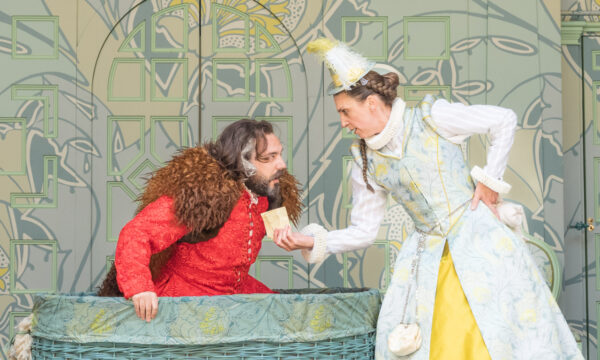
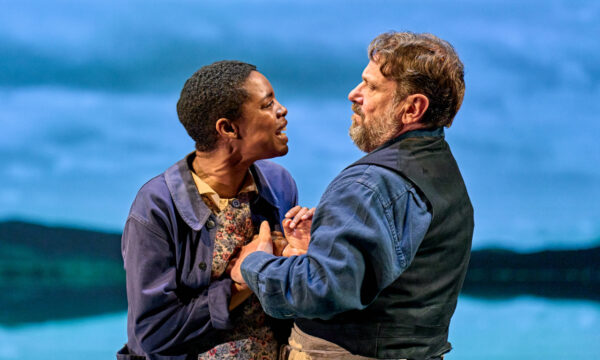
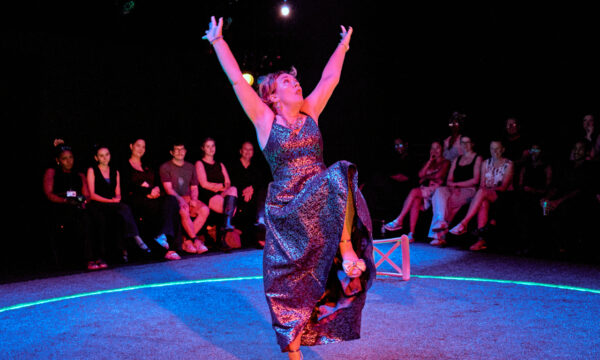
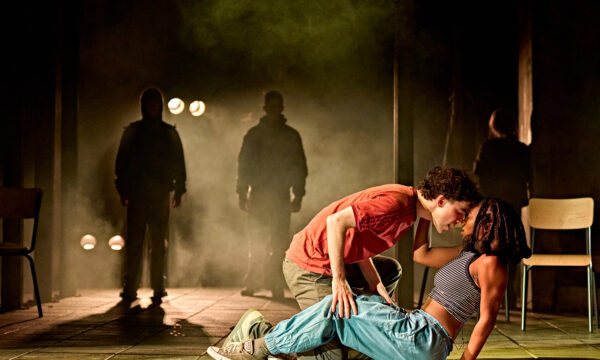
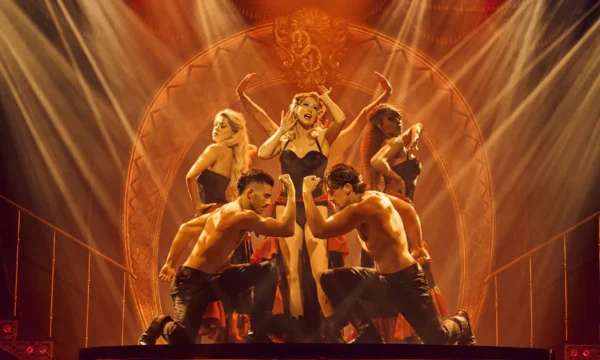
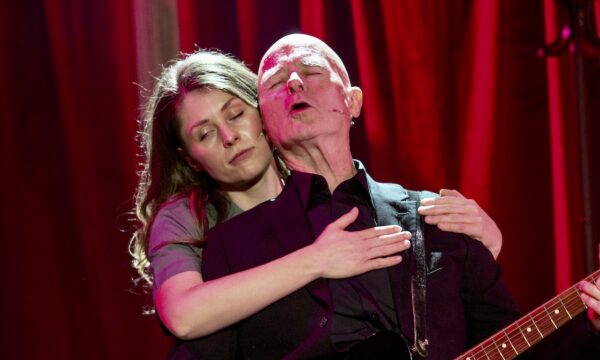
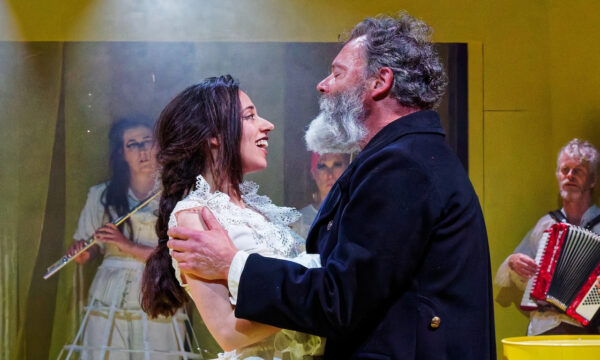





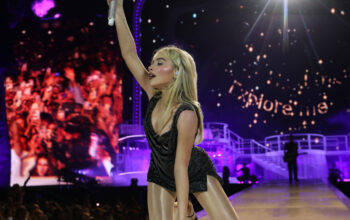
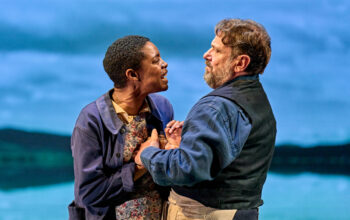





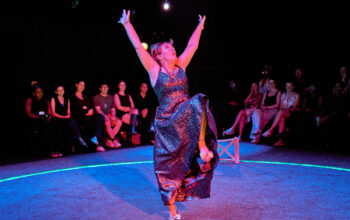
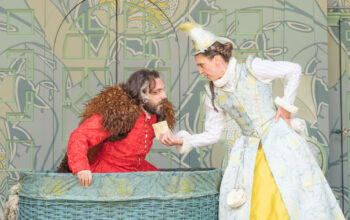

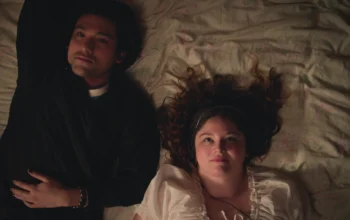
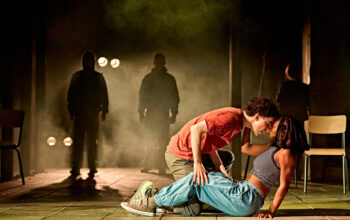
Facebook
Twitter
Instagram
YouTube
RSS